on the platform of supercapacitors
- Bulgaria-Italy-Spain supercapacitors


Проектът предвижда на база на сътрудничество с партньорските организации да се засилят научните постижения и иновационния капацитет на ИЕЕС-БАН в областта на електрохимичното съхранение на енергия чрез суперкондензатори.
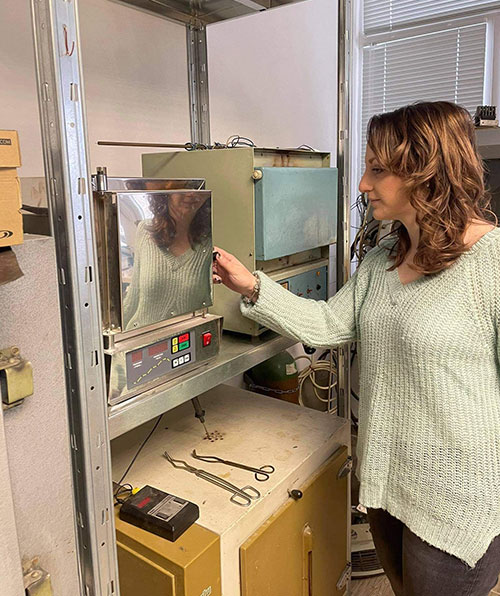
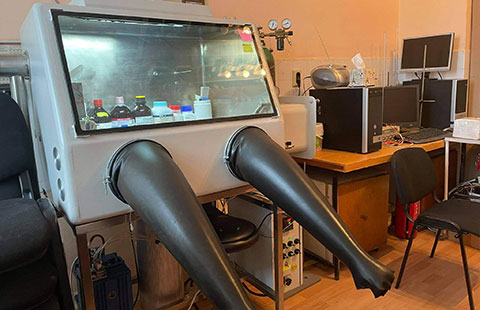
Публикации
Он-лайн обучения
Конференции
Работни срещи
Bulgaria-Italy-Spain supercapacitors
Проектна мрежа и управление на проекта
Обмен на ноу-хау и трансфер на технологии
Разпространение и експлоатация

Последни новини и събития
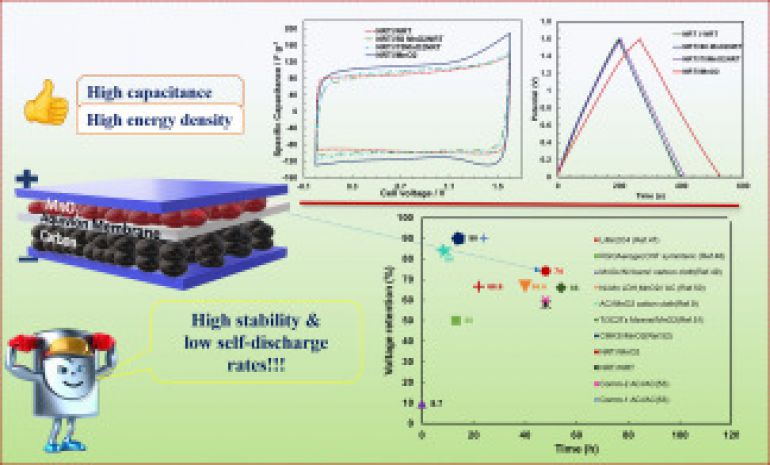
In this research work, we reported the synthesis of MnO2 by a simple co-precipitation technique and its use as electrode material for supercapacitors. Thus, hybrid supercapacitors with asymmetric configuration were constructed using a commercial activated carbon as the negative electrode, MnO2 and composites in the positive electrode, and Na+-form Aquivion electrolyte membrane as the separator and polymer electrolyte. The synergistic influence of MnO2 and carbon in the electrodes resulted in perfectly reversible charge storage processes at the positive electrode. As a result, the fabricated solid-state supercapacitors exhibited well rectangular voltammograms and a high specific capacitance of 130 F g ̶ 1 at 0.2 A g ̶ 1 , as well as an energy density of 11.5 Wh kg ̶ 1 at a power density of 161 W kg ̶ 1. Moreover, this type of hybrid supercapacitor was able to achieve a long lifetime (i.e., 150 h at 1.6 V) for up to 10,000 cycles through a combination of galvanostatic charging/discharging, and floating conditions without compromising the capacitance stability. In addition, the NRT//MnO2 supercapacitor exhibited excellent voltage retention (self-discharge) of more than ~74% at 48 h after charging in a high-voltage window of 1.6 V. These results suggest that the presented asymmetric solid-state configuration may be suitable for developing more efficient and sustainable energy storage devices.
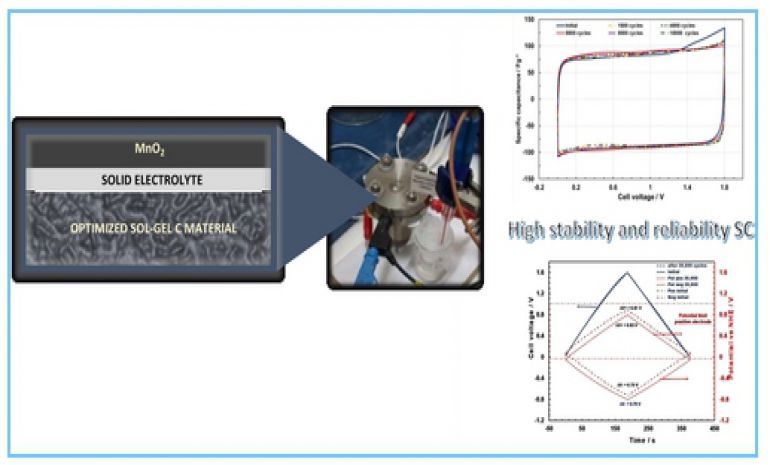
Supercapacitors are playing a very relevant role in many applications due to their capability to supply high power density and long durability. However, there is a growing demand to increase their energy density, in gravimetric and volumetric basis. There are different strategies to increase supercapacitor performance by improving the active materials used in the electrodes, the type of electrolyte used or even the configuration employed in the cell. In this work, a combination of these strategies is presented with the use of different active materials, electrolytes, and symmetric vs. asymmetric configuration. The supercapacitor with asymmetric configuration using the graphene-doped carbon xerogel in the negative electrode and the manganese oxide in the positive electrode, along with the use of Na+-form Aquivion electrolyte membrane as solid electrolyte, seems to be a promising combination to obtain a substantial enhancement of both gravimetric and volumetric capacitance. Furthermore, the device presents great stability in a wide operational voltage window from 0 to 1.8 V and with a neutral pH polymer electrolyte which contributes to improve the performance, safety, and long cycle life of the device.
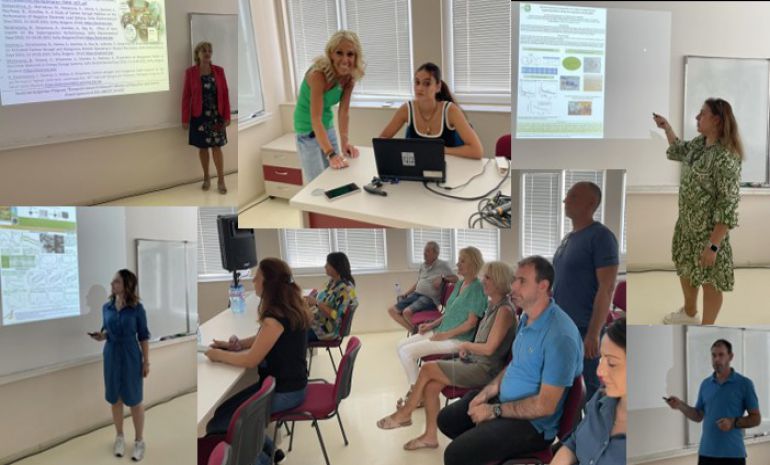
На 12 септември 2023 г. се проведе Заключителна среща по проекта BIScaps, на която бяха отчетени най-важните научни резултати. Проф. Антония Стоянова обобщи извършените дейности, като изрази задоволство от постигнатото. Тя подчерта огромното значение, което изпълнението на проекта има за повишаване на експертното ниво и израстване на младите български учени, прилагайки подхода "Учение чрез работа". Ръководителят на проекта благодари на италианските и испански партньори за положените усилия при реализацията му и изрази увереност, че е това е само първа стъпка в бъдещото сътрудничество между трите научни организации. Проф. Стоянова изказа също благодарност на участниците за тяхната работа и не на последно място на Министерството на образованието и науката на Република България за финансовата подкрепа.